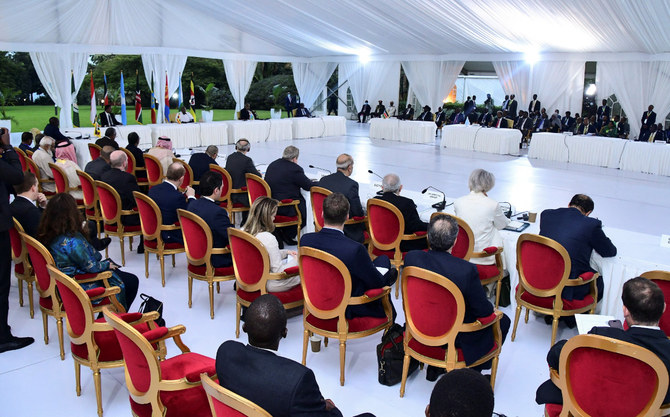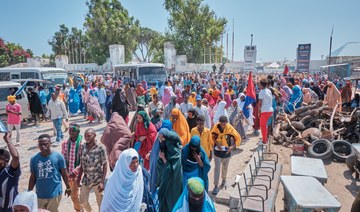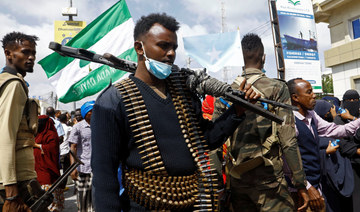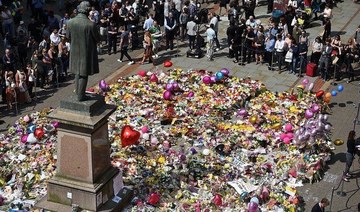NAIROBI, Kenya: The African Union, European Union, and United States called Thursday for an immediate ceasefire and constructive dialogue between warring factions in Sudan.
The groups also called for an end to tension between Somalia and Ethiopia over an agreement signed between Ethiopia and Somalia’s breakaway region Somaliland.
Representatives of the groups, who spoke in Kampala, Uganda, after the meeting of an East African regional bloc, said that the two crises are threatening regional stability in the Horn of Africa.
Sudan’s armed forces and the rival Rapid Support Forces have been fighting for control of Sudan since April. Long-standing tensions erupted into street battles in the capital and other areas including the western Darfur region.
The AU, EU and US and UN noted that the fighting has displaced 7 million people and kept 19 million children out of school.
Michael Hammer, US special envoy for the Horn of Africa, called on Sudan’s factions to adhere to their obligations under international humanitarian law and to fulfill recent commitments to stop fighting.
“It’s time for them to take action consistent with their stated claims that they want to stop the fighting and meet the needs of the people,” Hammer said.
He spoke after the regional bloc Intergovernmental Authority on Development, or IGAD, held an emergency meeting of heads of states in Kampala to discuss the Sudan war and rising tension between Somalia and Ethiopia.

Sudanese army officials greet the crowd during a meeting with the city's governor supporters and members of the Sudanese armed popular resistance, which supports the army, in Gedaref, Sudan, on January 16, 2024. (AFP)
Hammer said the leader of Sudan’s army, Gen. Abdel-Fattah Burhan, and the commander of the paramilitary Rapid Support Forces, Gen. Mohammed Hamdan Dagalo, who is known as Hemedti, must follow through on their promise at a Dec. 9 IGAD summit to reach an unconditional cease-fire.
“They will be responsible for the break up of Sudan if this conflict continues,” Hammer said.
The first step is an enforceable cease-fire that can be closely monitored, said Ramtane Lamamra, the UN envoy for Sudan.
“Guns must be silenced,” he said, adding that the war endangers “stability of the entire region and beyond.”
On Tuesday, the Sudanese government suspended ties with the east African regional bloc, accusing it of violating Sudan’s sovereignty by inviting the paramilitary leader to a summit. Hemedti attended Thursday’s summit in Kampala but did not speak.
Regarding Somalia, the AU, EU and US said they recognize the country’s sovereignty, unity and territorial integrity, including the breakaway region of Somaliland.

Tension has been rising after land-locked Ethiopia signed an agreement on Jan. 1 with Somaliland to give it access to the sea. Somaliland in return expects Ethiopia soon to recognize the region as an independent state, which angers Somalia.
Hammer said the US is particularly concerned that the tensions could undermine international-backed efforts to combat Al-Qaeda-linked militants in Somalia.
Annette Weber, the EU special envoy for the Horn of Africa, said the two crises have a common link with Red Sea, which she called a critical waterway carrying 10 percent of global cargo.
Weber also said there needs to be a collective response among Horn of Africa countries against attacks on ships by Yemen-based Houthi rebels.






























